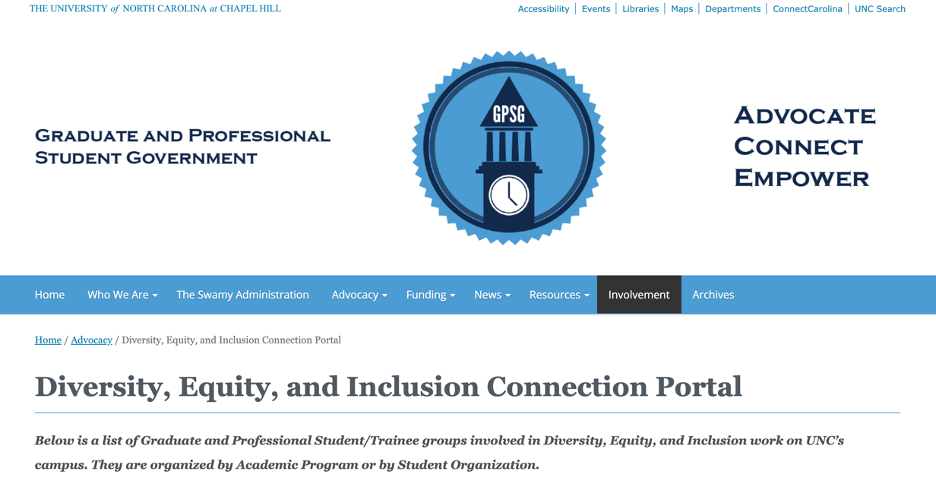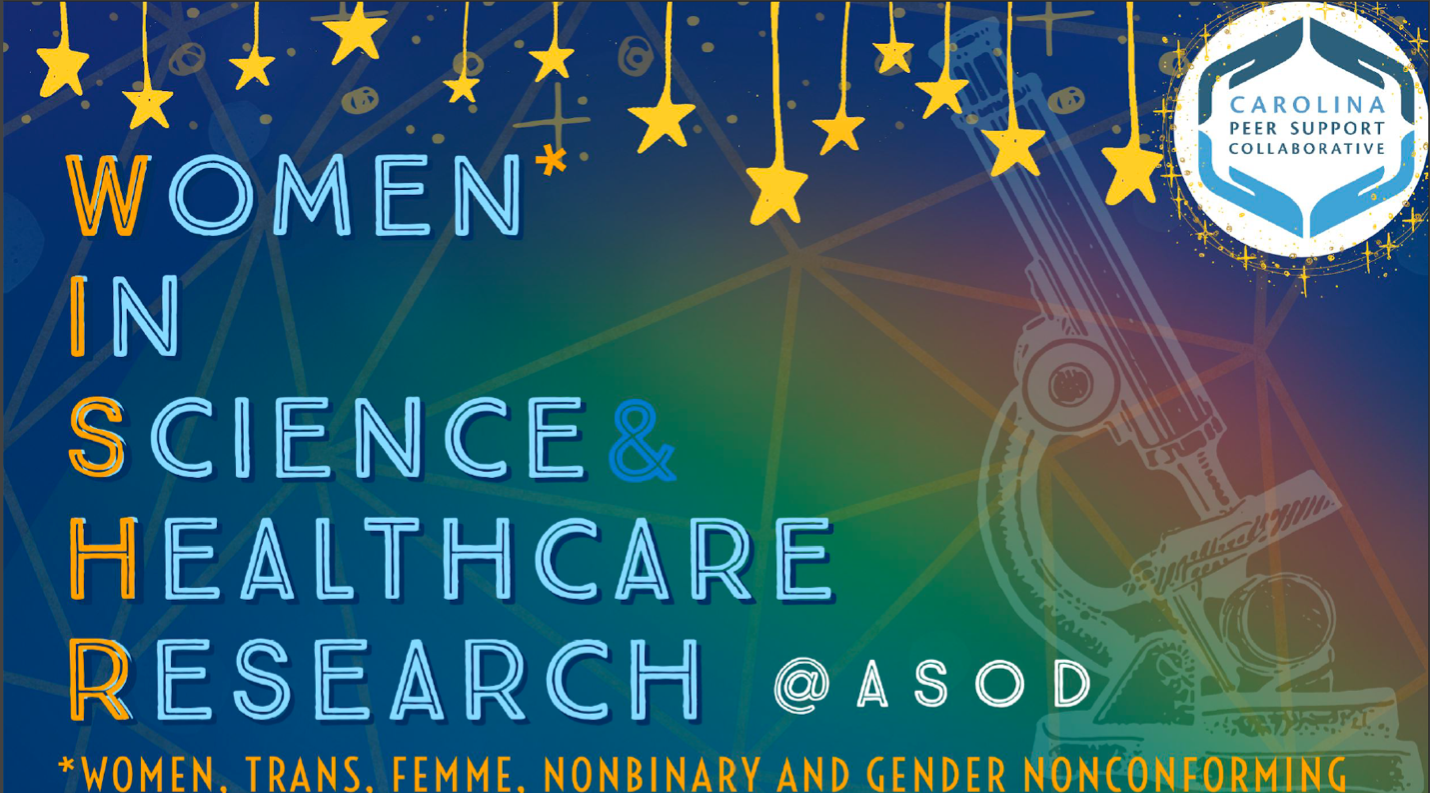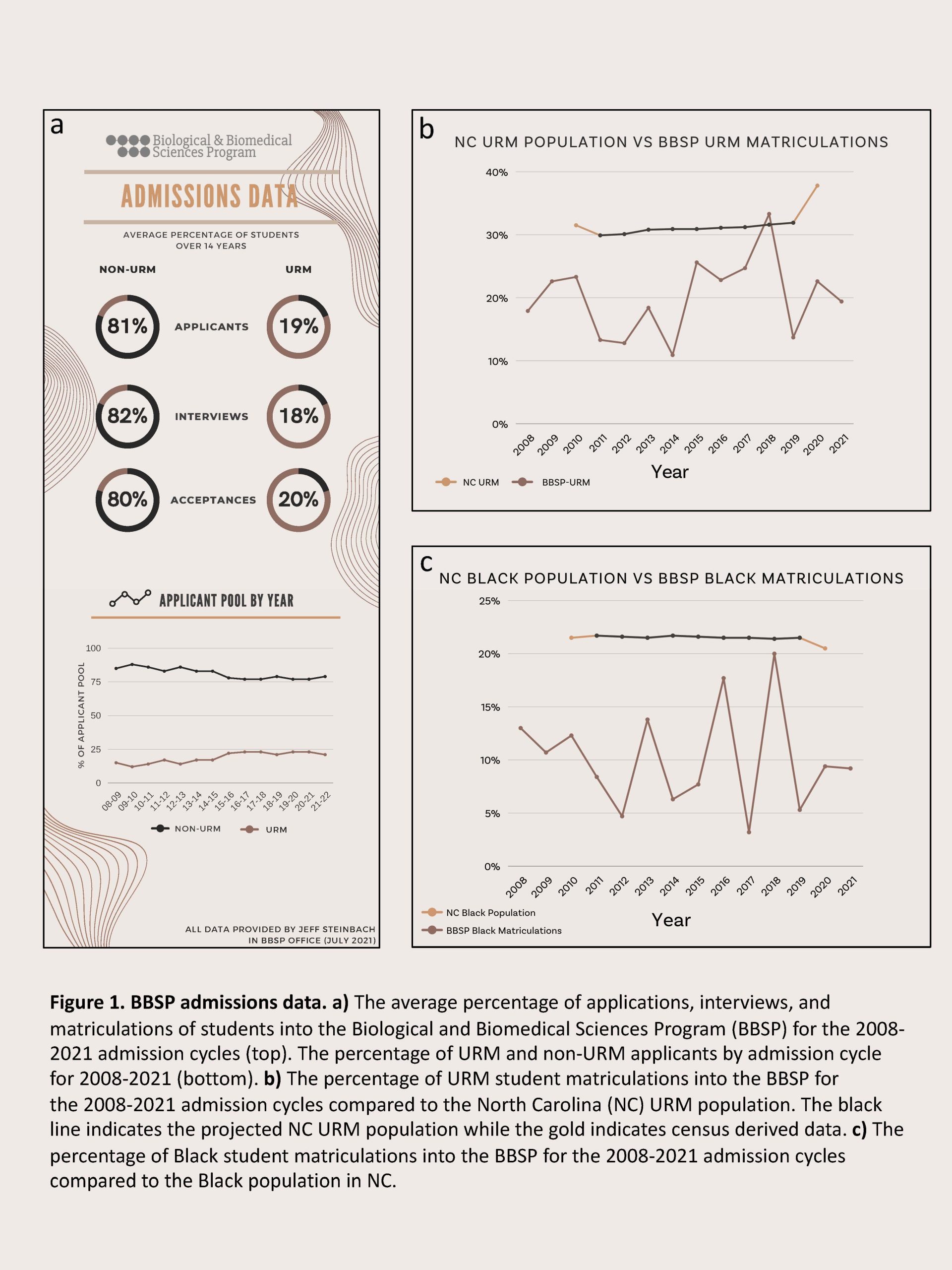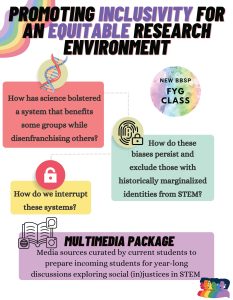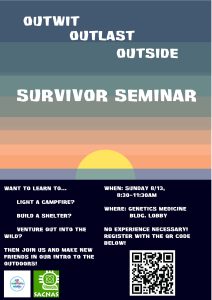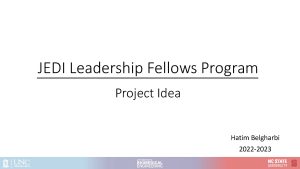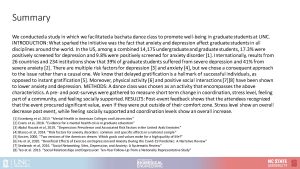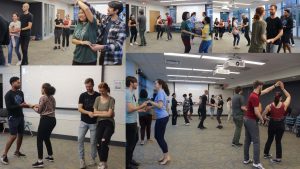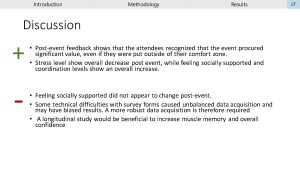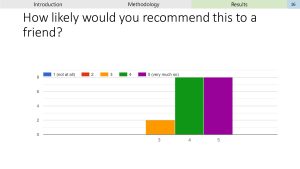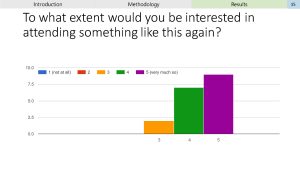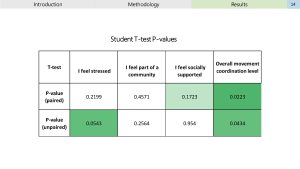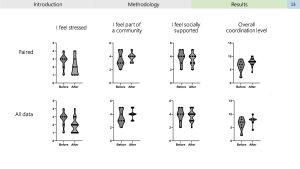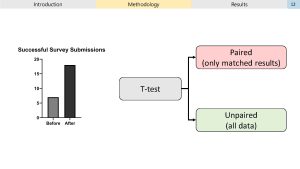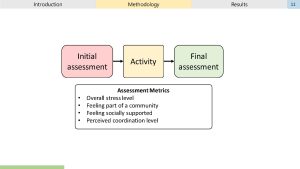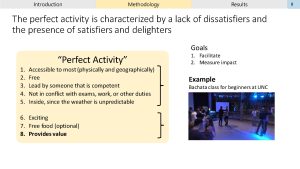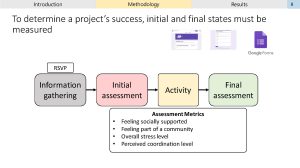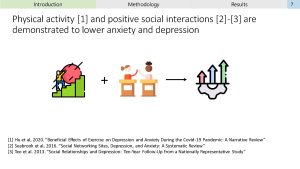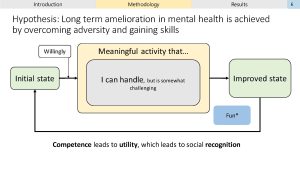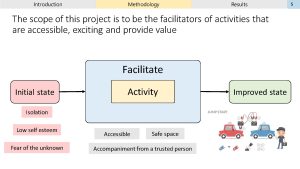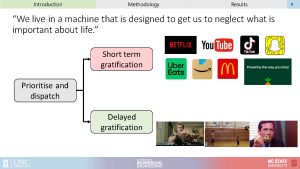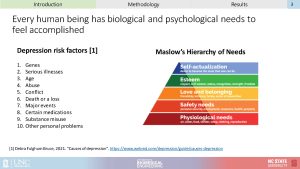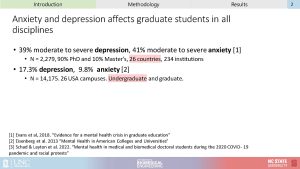Community Leaders Development Program
Community Leaders Development Program


Community Leaders Development Program (CLDP): Fostering the development of emerging leaders committed to building community in the academic biomedical research enterprise.
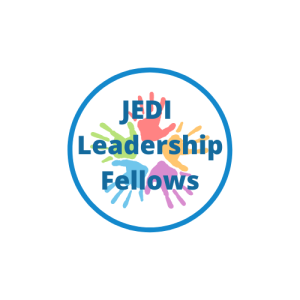
CLDP Description: Fellows will design and implement collaborative projects to create long-term sustainable change on campus and beyond. The needs within the biomedical research environment have highlighted the importance of training future leaders to develop welcoming and supportive communities. Each cohort will split into teams to develop collaborative projects and initiatives based on the selected cohort’s interests and proposed project ideas. Fellowship training program topics include broadly applicable skills in communication, leadership, and policy.
CLDP Fellows are competitively selected, motivated PhD candidates and postdocs looking to develop into community leaders. Selected candidates will have demonstrated commitment to building community in biomedical or scientific fields. Selected candidates will comprise the incoming CLDP cohort and will contribute to the expanding CLDP alumni community.
Interested in applying? Look for a call for applications annually early in the Fall. Currently applications will be OPEN for the 2024-2025 academic year, and we hope you’ll consider applying! See application requirements below.
Note: We encourage Senior Graduate Students and Postdocs to apply, if selected you will remain eligible to complete the training virtually with your Cohort after completing your graduation requirements or contract term, regardless of your affiliation with UNC at that time.
To apply click here: (New link coming soon! Check back when new application cycle opens.)
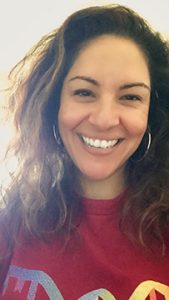
Juanita Limas (Planning Committee Member) is originally from Des Moines, Iowa, where she graduated with a Bachelor of Science degree in Biochemistry from the University of Iowa. She served 2 ½ years in the Peace Corps as a Community Health Volunteer in Nicaragua. She then pursued a master’s degree in Biomedical Sciences at Barry University, and began a career as a full-time community college instructor teaching anatomy and physiology to pre-med, nursing, and dental hygiene students. During her tenure at Kirkwood Community College (7 years), she became the founding LSAMP Campus Director and recruited and led the first cohort, and initiated Kirkwood’s first STEM club. At UNC, Juanita is active in community outreach as a graduate student including: as past-president of UNC SACNAS; member of Carolina First-Generation PhD student group (mentoring other 1st gen undergrads); as a leader and participant in UNC’s Initiative for Maximizing Student Development (IMSD) program (recruiting new biomedical PhD students); and as a community speaker about her Peace Corps experience. She started a nationwide initiative at HHMI (TAE Consortium) addressing mental health in academia following the death due to suicide of a Gilliam Fellow in her cohort. As a proven researcher ($150k+ funding including the HHMI Gilliam Fellowship and Burroughs Wellcome GDEP Fellowship), Juanita’s research focuses on understanding the mechanisms of oncogenic DNA replication stress. She has authored and/or co-authored 6 peer-reviewed publications. Juanita wishes to utilize her leadership and communication skills as a scientist and a teacher to be able to work with and direct teams focused on success. When she isn’t in the lab, she is spending time bike riding, reading, or hiking and is a fan of trashy soap operas.
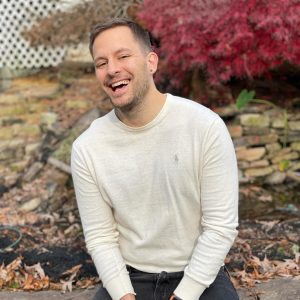
Chad Lloyd (Planning Committee Member) is a third-year Ph.D candidate in Marine Sciences at UNC, where his research focuses on carbon cycling and developing new methods to study carbon transformations in marine sediments. He received a dual degree in Chemistry (B.S.) and Anthropology (B.A.) with a minor in Forensic Sciences from The University of North Carolina at Wilmington (Go Seahawks!). Before entering the Department of Marine Sciences, he also received an M.S. in Chemistry from Carolina, where his research focused on drug evaluation using three-dimensional tumor models. He is passionate about improving higher education—through encouraging equitable professional development opportunities for all careers—and environmental research (specifically incorporating the use of MakerSpaces in environmental design and engineering). Chad is also involved in different initiatives on campus to increase diversity and perspective in higher education, including making higher education more accessible to underrepresented groups. Outside of school, Chad enjoys painting, playing basketball, building Lego sets, rock climbing, reading, and hiking with his friends.
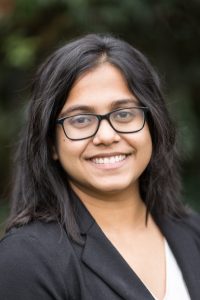
Anandita Pal (Planning Committee Member) is a doctoral candidate in Nutritional Biochemistry at the University of North Carolina – Chapel Hill. She studies how specialized pro-resolving lipid mediators improve immunometabolic outcomes. As an interdisciplinary scholar, she is passionate about social justice, science communication and engaging communities. She believes that creating a diverse platform with different viewpoints is the best approach to overcome any obstacle and make progress.
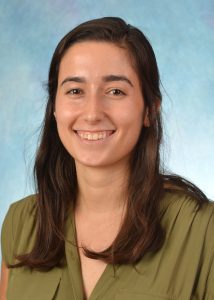
Sarah Yannarell (Planning Committee Member) is a senior graduate student in the Microbiology and Immunology Department at UNC-Chapel Hill. She studies the chemical and physical interactions of microbes in the soil. Sarah is originally from Pennsylvania, and she attended the University of Delaware for her undergraduate studies before attending UNC-Chapel Hill for graduate school. She has had the opportunity to study microbial communities across the world– one of her favorite experiences during graduate school was traveling to the Galápagos Islands, Ecuador for field work. She was also a DOE SCGSR Fellow and worked at the Pacific Northwest National Laboratory to use high-performance microbial imaging techniques and work closely with collaborators. Sarah is interested in pursuing a career in research and helping others access research and funding opportunities. Through the JEDI Leadership Fellows Program, she hopes to work closely with other Fellows to expand her perspective, foster an inclusive research environment, and contribute to her community.
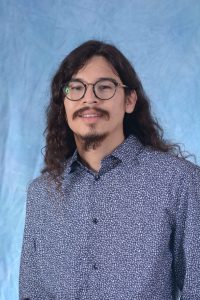 Oscar Arroyo is a graduate student in the Biological and Biomedical Sciences program at UNC Chapel Hill. He is originally from Southern California where he first became involved in diversity, equity, and inclusion efforts as an undergraduate at UC San Diego. As an undergraduate at UCSD he worked towards supporting retention rates for underrepresented students by mentoring and tutoring other Latinx students, and would continue this work as an alumnus. He is a firm believer in Pan-Americanism and believe that the people of the Americas should work towards a mutual respect and understanding of each other. In accordance with this goal he came to North Carolina so that he could serve and learn about a community outside of his native California. He hopes to help make UNC a more diverse and inclusive campus for everyone, and in doing so work towards a more equitable society.
Oscar Arroyo is a graduate student in the Biological and Biomedical Sciences program at UNC Chapel Hill. He is originally from Southern California where he first became involved in diversity, equity, and inclusion efforts as an undergraduate at UC San Diego. As an undergraduate at UCSD he worked towards supporting retention rates for underrepresented students by mentoring and tutoring other Latinx students, and would continue this work as an alumnus. He is a firm believer in Pan-Americanism and believe that the people of the Americas should work towards a mutual respect and understanding of each other. In accordance with this goal he came to North Carolina so that he could serve and learn about a community outside of his native California. He hopes to help make UNC a more diverse and inclusive campus for everyone, and in doing so work towards a more equitable society.
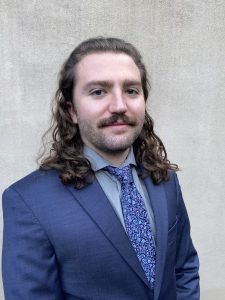 Mark Geisler is a graduate student in the Biological & Biomedical Sciences Program currently rotating through different labs, and he is interested in research on how changes in chromatin affect gene expression. He is originally from Aurora, Oregon and outside of work enjoy taking his dog Winston on hikes, cooking, and running. His experiences with diverse perspectives to this point have centered around mentoring and fostering mentoring environments for underrepresented minorities, first-generation, transfer, and out of state undergraduates. Moving forward he hopes to help increase access to and retention of URM undergraduate students in research settings as that is a key step in jump starting careers in science and higher education.
Mark Geisler is a graduate student in the Biological & Biomedical Sciences Program currently rotating through different labs, and he is interested in research on how changes in chromatin affect gene expression. He is originally from Aurora, Oregon and outside of work enjoy taking his dog Winston on hikes, cooking, and running. His experiences with diverse perspectives to this point have centered around mentoring and fostering mentoring environments for underrepresented minorities, first-generation, transfer, and out of state undergraduates. Moving forward he hopes to help increase access to and retention of URM undergraduate students in research settings as that is a key step in jump starting careers in science and higher education.
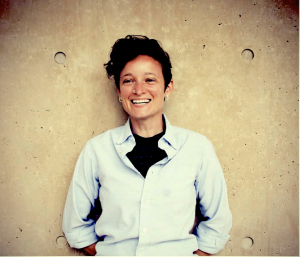 CL Graves is a postdoctoral fellow in the Adams School of Dentistry at UNC whose academic research focuses on understanding the biological consequences of childhood stress on gut health and immune mediated diseases. She began her academic career as a first-generation student at the Georgia Institute of Technology in Atlanta, Georgia where she first became interested in researching immune-mediated diseases after being diagnosed with multiple autoimmune conditions while a junior in college. It was also at Georgia Tech where she first became a passionate student advocate by serving as the founding chapter president of Active Minds at Georgia Tech, an organization committed to bringing mental health awareness to college campuses.
CL Graves is a postdoctoral fellow in the Adams School of Dentistry at UNC whose academic research focuses on understanding the biological consequences of childhood stress on gut health and immune mediated diseases. She began her academic career as a first-generation student at the Georgia Institute of Technology in Atlanta, Georgia where she first became interested in researching immune-mediated diseases after being diagnosed with multiple autoimmune conditions while a junior in college. It was also at Georgia Tech where she first became a passionate student advocate by serving as the founding chapter president of Active Minds at Georgia Tech, an organization committed to bringing mental health awareness to college campuses.
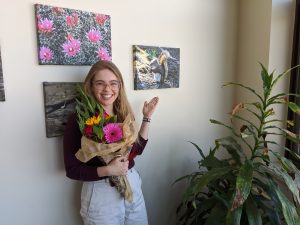 Anna Parker is a PhD student in the Biology Department at UNC – Chapel Hill. She studies climate change and how rising temperatures affect plant-insect interactions. Hailing from northeast Ohio, she has traveled across the country during her academic training, receiving her undergraduate degrees from the University of Rochester and her Master’s degree from the University of Wyoming. Chapel Hill is the warmest place she’s ever lived, and she is fully appreciating the hot summers and proximity to the beach! At UNC, she is actively involved with the Biology Safe Spaces Committee, the Biology Graduate Students’ Association, and the Carolina Biology Education Research Group. After grad school, she aims to become a professor at a research institution, where she will continue to investigate how warming climates will affect the natural world. She hopes to use this position to help inspire the next generation of diverse biologists and make a positive impact on the culture associated with biological research. When she isn’t feeding caterpillars or coding in R, she is probably playing Dungeons and Dragons or board games with friends, hiking with her girlfriend, or tackling people on the rugby pitch.
Anna Parker is a PhD student in the Biology Department at UNC – Chapel Hill. She studies climate change and how rising temperatures affect plant-insect interactions. Hailing from northeast Ohio, she has traveled across the country during her academic training, receiving her undergraduate degrees from the University of Rochester and her Master’s degree from the University of Wyoming. Chapel Hill is the warmest place she’s ever lived, and she is fully appreciating the hot summers and proximity to the beach! At UNC, she is actively involved with the Biology Safe Spaces Committee, the Biology Graduate Students’ Association, and the Carolina Biology Education Research Group. After grad school, she aims to become a professor at a research institution, where she will continue to investigate how warming climates will affect the natural world. She hopes to use this position to help inspire the next generation of diverse biologists and make a positive impact on the culture associated with biological research. When she isn’t feeding caterpillars or coding in R, she is probably playing Dungeons and Dragons or board games with friends, hiking with her girlfriend, or tackling people on the rugby pitch.
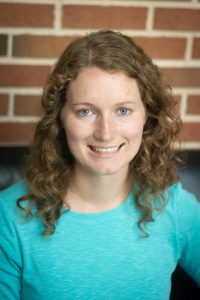 Rachel Walmer (nee White) graduated from the University of Delaware in 2016 with a Bachelors degree in Biomedical Engineering. Currently, she is pursuing her PhD in Biomedical Engineering under the direction of Dr. Paul Dayton. Her work in the Dayton Lab focuses on clinical applications of contrast-enhanced ultrasound. Her research projects involve the use of targeted ultrasound contrast agents to monitor and predict response to chemotherapy, a technique known as ultrasound molecular imaging, as well as exploring the role of contrast-enhanced ultrasound for diagnosing lesions in patients with chronic kidney disease, and for the early detection of diabetic kidney disease. Rachel has most enjoyed and benefitted from the collaborative nature of her work. Her projects have enabled her to travel throughout the state, working alongside researchers from Wake Forest University, North Carolina Agricultural and Technical State University, Duke University, and North Carolina State University. In addition to her research, she has gotten involved in various service and outreach opportunities with the department. Most notably, she has volunteered with and led the annual Biomedical Engineering Summer Camp in coordination with the Engineering Place at NC State, and served as the Science Outreach Coordinator for the joint Biomedical Engineering Graduate Student Association between NC State and UNC. Recently, she has joined the Diversity Committee newly established by the Biomedical Engineering Department, working on the Pipeline subcommittee to improve the access that Black, Latinx, and Indigenous students have to engineering and science. In her free time she enjoys indoor rock climbing, hanging out with her church community, and spending time outside.
Rachel Walmer (nee White) graduated from the University of Delaware in 2016 with a Bachelors degree in Biomedical Engineering. Currently, she is pursuing her PhD in Biomedical Engineering under the direction of Dr. Paul Dayton. Her work in the Dayton Lab focuses on clinical applications of contrast-enhanced ultrasound. Her research projects involve the use of targeted ultrasound contrast agents to monitor and predict response to chemotherapy, a technique known as ultrasound molecular imaging, as well as exploring the role of contrast-enhanced ultrasound for diagnosing lesions in patients with chronic kidney disease, and for the early detection of diabetic kidney disease. Rachel has most enjoyed and benefitted from the collaborative nature of her work. Her projects have enabled her to travel throughout the state, working alongside researchers from Wake Forest University, North Carolina Agricultural and Technical State University, Duke University, and North Carolina State University. In addition to her research, she has gotten involved in various service and outreach opportunities with the department. Most notably, she has volunteered with and led the annual Biomedical Engineering Summer Camp in coordination with the Engineering Place at NC State, and served as the Science Outreach Coordinator for the joint Biomedical Engineering Graduate Student Association between NC State and UNC. Recently, she has joined the Diversity Committee newly established by the Biomedical Engineering Department, working on the Pipeline subcommittee to improve the access that Black, Latinx, and Indigenous students have to engineering and science. In her free time she enjoys indoor rock climbing, hanging out with her church community, and spending time outside.
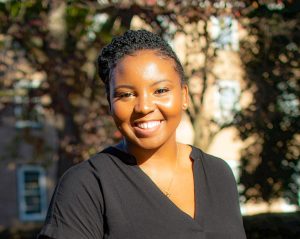 Danielle Williams was born and raised in Southern California. Attending a PWI for her undergraduate education ignited her enthusiasm for creating inclusive spaces in higher education in STEM. She was heavily involved in advocacy and development of safe spaces for URMs throughout undergrad. In addition, she acquired resources and funding to support first generation college students in experiencing new career and research opportunities in STEM. Even in her post-bac at the University of Washington, she helped develop one of the first communities to support BIPOC individuals. She is excited to be apart of new DEI initiatives to develop inclusive, supportive communities here at UNC.
Danielle Williams was born and raised in Southern California. Attending a PWI for her undergraduate education ignited her enthusiasm for creating inclusive spaces in higher education in STEM. She was heavily involved in advocacy and development of safe spaces for URMs throughout undergrad. In addition, she acquired resources and funding to support first generation college students in experiencing new career and research opportunities in STEM. Even in her post-bac at the University of Washington, she helped develop one of the first communities to support BIPOC individuals. She is excited to be apart of new DEI initiatives to develop inclusive, supportive communities here at UNC.
 Anna Parker (Team Leader) is a PhD student in the Biology Department at UNC – Chapel Hill. She studies climate change and how rising temperatures affect plant-insect interactions. Hailing from northeast Ohio, she has traveled across the country during her academic training, receiving her undergraduate degrees from the University of Rochester and her Master’s degree from the University of Wyoming. Chapel Hill is the warmest place she’s ever lived, and she is fully appreciating the hot summers and proximity to the beach! At UNC, she is actively involved with the Biology Safe Spaces Committee, the Biology Graduate Students’ Association, and the Carolina Biology Education Research Group. After grad school, she aims to become a professor at a research institution, where she will continue to investigate how warming climates will affect the natural world. She hopes to use this position to help inspire the next generation of diverse biologists and make a positive impact on the culture associated with biological research. When she isn’t feeding caterpillars or coding in R, she is probably playing Dungeons and Dragons or board games with friends, hiking with her girlfriend, or tackling people on the rugby pitch.
Anna Parker (Team Leader) is a PhD student in the Biology Department at UNC – Chapel Hill. She studies climate change and how rising temperatures affect plant-insect interactions. Hailing from northeast Ohio, she has traveled across the country during her academic training, receiving her undergraduate degrees from the University of Rochester and her Master’s degree from the University of Wyoming. Chapel Hill is the warmest place she’s ever lived, and she is fully appreciating the hot summers and proximity to the beach! At UNC, she is actively involved with the Biology Safe Spaces Committee, the Biology Graduate Students’ Association, and the Carolina Biology Education Research Group. After grad school, she aims to become a professor at a research institution, where she will continue to investigate how warming climates will affect the natural world. She hopes to use this position to help inspire the next generation of diverse biologists and make a positive impact on the culture associated with biological research. When she isn’t feeding caterpillars or coding in R, she is probably playing Dungeons and Dragons or board games with friends, hiking with her girlfriend, or tackling people on the rugby pitch.
 Mark Geisler (Team Leader) is a graduate student in the Biological & Biomedical Sciences Program, and he is interested in research on how changes in chromatin affect gene expression. He is originally from Aurora, Oregon and outside of work enjoy taking his dog Winston on hikes, cooking, and running. His experiences with diverse perspectives to this point have centered around mentoring and fostering mentoring environments for underrepresented minorities, first-generation, transfer, and out of state undergraduates. Moving forward he hopes to help increase access to and retention of URM undergraduate students in research settings as that is a key step in jump starting careers in science and higher education.
Mark Geisler (Team Leader) is a graduate student in the Biological & Biomedical Sciences Program, and he is interested in research on how changes in chromatin affect gene expression. He is originally from Aurora, Oregon and outside of work enjoy taking his dog Winston on hikes, cooking, and running. His experiences with diverse perspectives to this point have centered around mentoring and fostering mentoring environments for underrepresented minorities, first-generation, transfer, and out of state undergraduates. Moving forward he hopes to help increase access to and retention of URM undergraduate students in research settings as that is a key step in jump starting careers in science and higher education.
 Oscar Arroyo (Advisor) is a graduate student in the Biological and Biomedical Sciences program at UNC Chapel Hill. He is originally from Southern California where he first became involved in diversity, equity, and inclusion efforts as an undergraduate at UC San Diego. As an undergraduate at UCSD he worked towards supporting retention rates for underrepresented students by mentoring and tutoring other Latinx students, and would continue this work as an alumnus. He is a firm believer in Pan-Americanism and believe that the people of the Americas should work towards a mutual respect and understanding of each other. In accordance with this goal he came to North Carolina so that he could serve and learn about a community outside of his native California. He hopes to help make UNC a more diverse and inclusive campus for everyone, and in doing so work towards a more equitable society.
Oscar Arroyo (Advisor) is a graduate student in the Biological and Biomedical Sciences program at UNC Chapel Hill. He is originally from Southern California where he first became involved in diversity, equity, and inclusion efforts as an undergraduate at UC San Diego. As an undergraduate at UCSD he worked towards supporting retention rates for underrepresented students by mentoring and tutoring other Latinx students, and would continue this work as an alumnus. He is a firm believer in Pan-Americanism and believe that the people of the Americas should work towards a mutual respect and understanding of each other. In accordance with this goal he came to North Carolina so that he could serve and learn about a community outside of his native California. He hopes to help make UNC a more diverse and inclusive campus for everyone, and in doing so work towards a more equitable society.
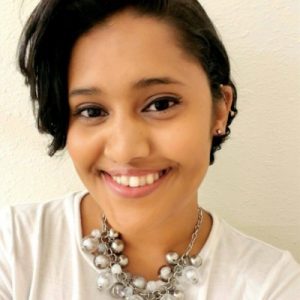 Christiann Gaines (Advisor) (she/her) is originally from Trinidad and Tobago, a small island in the Caribbean. She moved to the US in 2010 where she attended and gained her Bachelor of Science degree in Biochemistry at Claflin University. During this time, she truly understood her passion for engaging in work to increase minority populations in STEM fields. She mentored, tutored and advised students throughout her undergraduate career. Following her undergraduate work, she was accepted into a joint 2-year post-baccalaureate research program between Novartis Institutes for BioMedical Research and Harvard University, geared towards underrepresented students interested in pursuing a PhD. She then went on to receive her PhD in Neuroscience at UNC Chapel Hill. As a first-generation college and graduate student, she understood the important and integral need for greater diversity in STEM programs. Throughout her academic career she was actively involved in attending conferences focused on minority students and recruiting them to biomedical programs. At UNC, she co-founded the Global Perspectives in BioMedicine (GPB) organization, which aims to assist internationals at UNC in their transition from their home countries to life in the US as a graduate student. Additionally, GBP provides workshops and resources needed to promote the professional development of our international community. Christiann is also passionate about mentoring, mental health and wellness, and assisting with the holistic development of graduate students. To continue her work on campus to increase diverse initiates and graduate student support, Christiann is a post-doctoral research associate in the Office of Graduate Education where her goals are to study mentor/mentee relationships, mental health and wellness of graduate students and professional development of graduate students at UNC. Outside of work, she enjoys trying new restaurants, swimming, and spending time with her husband, son and 2 cat fur babies.
Christiann Gaines (Advisor) (she/her) is originally from Trinidad and Tobago, a small island in the Caribbean. She moved to the US in 2010 where she attended and gained her Bachelor of Science degree in Biochemistry at Claflin University. During this time, she truly understood her passion for engaging in work to increase minority populations in STEM fields. She mentored, tutored and advised students throughout her undergraduate career. Following her undergraduate work, she was accepted into a joint 2-year post-baccalaureate research program between Novartis Institutes for BioMedical Research and Harvard University, geared towards underrepresented students interested in pursuing a PhD. She then went on to receive her PhD in Neuroscience at UNC Chapel Hill. As a first-generation college and graduate student, she understood the important and integral need for greater diversity in STEM programs. Throughout her academic career she was actively involved in attending conferences focused on minority students and recruiting them to biomedical programs. At UNC, she co-founded the Global Perspectives in BioMedicine (GPB) organization, which aims to assist internationals at UNC in their transition from their home countries to life in the US as a graduate student. Additionally, GBP provides workshops and resources needed to promote the professional development of our international community. Christiann is also passionate about mentoring, mental health and wellness, and assisting with the holistic development of graduate students. To continue her work on campus to increase diverse initiates and graduate student support, Christiann is a post-doctoral research associate in the Office of Graduate Education where her goals are to study mentor/mentee relationships, mental health and wellness of graduate students and professional development of graduate students at UNC. Outside of work, she enjoys trying new restaurants, swimming, and spending time with her husband, son and 2 cat fur babies.
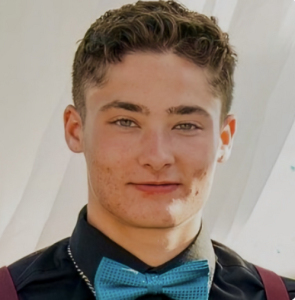 Micah Hysong (he/him) is a first-year PhD student in the Biological and Biomedical Sciences Program. At the end of the year, he plans to join the Genetics and Molecular Biology program and pursue a certificate in Bioinformatics and Computational Science. His research interests revolve around understanding the Histone Code. He received his undergraduate degree at North Carolina State University where he double majored in Biochemistry Honors and Genetics and received a minor in Biotechnology. Micah discovered his love for science communication and increasing diversity in STEM and higher education in high school when he was a teaching assistant for a science in the summer program designed to interest hundreds of underrepresented and underserved students in science. He fostered his love for teaching science during his undergraduate career through tutoring women in STEM and being a teaching assistant for his Principles of Biochemistry course. He also tutored and mentored students in underutilized communities at a local community college. During one of Micah’s undergraduate research projects, he transformed peer-reviewed research into highly digestible and accessible information for readers with non-scientific backgrounds. He hopes to continue developing his commitment to diversity, equity, and inclusion during his graduate studies and combine this commitment with his interests in science communication. He believes that by training graduate fellows to effectively convey their science to the lay community, we can break down barriers for individuals lacking the resources to pursue higher education and foster trust with the wider community. In his free time, Micah enjoys going to the gym, playing soccer, and engaging with the LGBTQ community.
Micah Hysong (he/him) is a first-year PhD student in the Biological and Biomedical Sciences Program. At the end of the year, he plans to join the Genetics and Molecular Biology program and pursue a certificate in Bioinformatics and Computational Science. His research interests revolve around understanding the Histone Code. He received his undergraduate degree at North Carolina State University where he double majored in Biochemistry Honors and Genetics and received a minor in Biotechnology. Micah discovered his love for science communication and increasing diversity in STEM and higher education in high school when he was a teaching assistant for a science in the summer program designed to interest hundreds of underrepresented and underserved students in science. He fostered his love for teaching science during his undergraduate career through tutoring women in STEM and being a teaching assistant for his Principles of Biochemistry course. He also tutored and mentored students in underutilized communities at a local community college. During one of Micah’s undergraduate research projects, he transformed peer-reviewed research into highly digestible and accessible information for readers with non-scientific backgrounds. He hopes to continue developing his commitment to diversity, equity, and inclusion during his graduate studies and combine this commitment with his interests in science communication. He believes that by training graduate fellows to effectively convey their science to the lay community, we can break down barriers for individuals lacking the resources to pursue higher education and foster trust with the wider community. In his free time, Micah enjoys going to the gym, playing soccer, and engaging with the LGBTQ community.
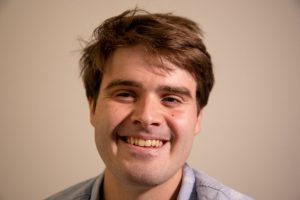 David Malcolm (he/him) is a passionate researcher, storyteller, and naturalist working towards a master’s degree in marine ecology. He was raised with a very close connection to the land in his home state of Florida, and grew up well-associated with the pine forests, sandhills, and springs that cover its landscape. Exploring those wild spaces and working as a conservation outreach volunteer at the local zoo helped develop an innate love of nature into a passion for its protection and conservation that drives him to work and grow as a naturalist. As an adult, he recognized that there were and are a lot of problems facing our environment and our communities. It’s easy to see that some people have lost hope for our land; lost hope that anyone is going to step up to make changes and work hard to build a healthier, greener future for our planet. He understands that fear, but knows that change has to start somewhere and that, often times, we need to be the change we want to see in the world. That’s why he is dedicated to building a career in ecology and environmental science, so that he can devote his life’s work to making a positive impact for our planet, and protecting our natural resources, so that one day, every person can have the opportunities he had to discover and love our beautiful, natural, Earth.
David Malcolm (he/him) is a passionate researcher, storyteller, and naturalist working towards a master’s degree in marine ecology. He was raised with a very close connection to the land in his home state of Florida, and grew up well-associated with the pine forests, sandhills, and springs that cover its landscape. Exploring those wild spaces and working as a conservation outreach volunteer at the local zoo helped develop an innate love of nature into a passion for its protection and conservation that drives him to work and grow as a naturalist. As an adult, he recognized that there were and are a lot of problems facing our environment and our communities. It’s easy to see that some people have lost hope for our land; lost hope that anyone is going to step up to make changes and work hard to build a healthier, greener future for our planet. He understands that fear, but knows that change has to start somewhere and that, often times, we need to be the change we want to see in the world. That’s why he is dedicated to building a career in ecology and environmental science, so that he can devote his life’s work to making a positive impact for our planet, and protecting our natural resources, so that one day, every person can have the opportunities he had to discover and love our beautiful, natural, Earth.
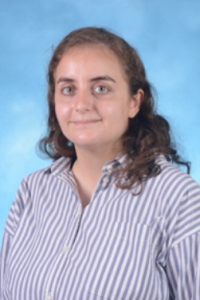 Maria Al Haddad (she/her) is a first-generation, international, second year graduate student in Biochemistry and Biophysics at UNC. Her research focuses on the activation mechanisms of PI3K and its interaction with Ras in health and disease states. The cancer therapeutics research industry in Lebanon is barely present and greatly flawed which is why she has chosen to pursue a PhD in this field in hopes of eventually returning to Lebanon and becoming a pioneer in the growing field of health science and cancer therapeutics. Before joining UNC, she completed her Master’s in Molecular Biology at the Lebanese American University in her home contry of Lebanon where she co-authored 6 peer reviewed publications focusing on the role of RhoGTPases in disease and cancer metastasis. As an undergrad, she served as a logistics and operations coordinator for Model UN and Model Arab League conferences. Additionally, she worked with the TEDxLAU team for 5 years as the speaker curation team leader and helped with logistics and operations. Through these extracurriculars, she helped in providing platforms during which she was able to facilitate spreading impactful information and knowledge to a diverse crowd. Outside LAU, she was a volunteer EMT and mission leader with the Lebanese Red Cross for 6 years and a volunteer tutor for children from underprivileged communities.
Maria Al Haddad (she/her) is a first-generation, international, second year graduate student in Biochemistry and Biophysics at UNC. Her research focuses on the activation mechanisms of PI3K and its interaction with Ras in health and disease states. The cancer therapeutics research industry in Lebanon is barely present and greatly flawed which is why she has chosen to pursue a PhD in this field in hopes of eventually returning to Lebanon and becoming a pioneer in the growing field of health science and cancer therapeutics. Before joining UNC, she completed her Master’s in Molecular Biology at the Lebanese American University in her home contry of Lebanon where she co-authored 6 peer reviewed publications focusing on the role of RhoGTPases in disease and cancer metastasis. As an undergrad, she served as a logistics and operations coordinator for Model UN and Model Arab League conferences. Additionally, she worked with the TEDxLAU team for 5 years as the speaker curation team leader and helped with logistics and operations. Through these extracurriculars, she helped in providing platforms during which she was able to facilitate spreading impactful information and knowledge to a diverse crowd. Outside LAU, she was a volunteer EMT and mission leader with the Lebanese Red Cross for 6 years and a volunteer tutor for children from underprivileged communities.
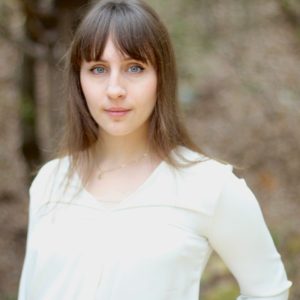
Anna Wheless (she/her) is from Houston, TX and graduated summa cum laude in 2019 with a B.S. in Biology (concentration: Microbiology) from the University of Houston – Downtown. At UHD she served as a Supplemental Instruction Leader, tutoring a diverse student population enrolled in “barrier” courses such as General Chemistry. She strongly believes that equity in education opportunities at allphases of life is a critical piece of a more equitable society. As an undergraduate in research, she sought out projects that focused on improvements to her community, including two projects with the Harris County Health Department, one of which was in collaboration with Baylor College of Medicine. She is acknowledged in a built environment Health Impact Assessment of an underfunded neighborhood in Houston and is an author on two papers addressing the burden of Chagas disease, an emerging infectious disease in southern Texas. She moved to North Carolina for graduate school and is now a Ph.D. candidate in the Biochemistry and Biophysics department and an NSF graduate research fellow. Her research is on the structural and functional characterization of interacting proteins that are critical in lipid metabolism. She has served as a planning committee member for the Dismantling Racism in Academia Journal Club and Discussion Group and is currently the leading editor for the NC DNA Day CONNECT Blog, a publication that aims to communicate science to high school students. Outside of lab, Anna likes to practice her portrait photography on friends and read science fiction.
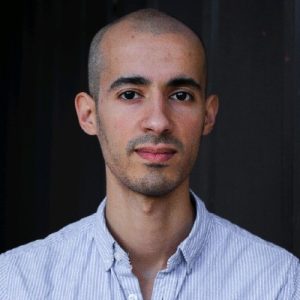 Hatim Belgharbi (he/him) graduated from Polytechnique Montreal and pursued a masters degree in the same field of Biomedical Engineering. Currently, he is pursuing his PhD in the Joint Biomedical Engineering program at UNC Chapel Hill and NC State, under the supervision of Paul Dayton and Gianmarco Pinton. His research focus on 3D super-resolution imaging is an extension of his prior research, where he developed a simulation framework for Ultrasound Localization Microscopy (ULM). During his undergraduate studies, he joined Project PC2: a non-profit organization based at Polytechnique Montreal where he was first actively involved in diversity, equity, and inclusion efforts. In 2016, for a period of 8 weeks, Hatim and his team were in Cap-Haitien and Jacmel, Haiti, where they led learning seminars on open-source productivity software LibreOffice, an equivalent to the Microsoft Office suite. Hatim believes that information sharing is most effective when both parties are humbled by the fact that they are equally benefiting from the exchange. Through exciting and visually appealing content, technical information was shared to not only students but also to staff, which helps create a more sustainable impact in local communities. In the following year, he took the role of administrator in the comittee and subsequently served as the director for the next two years. Through humble-minded conversations, positive thinking, and active speaking, he hopes to foster an inclusive circle in his community. When he is not reading papers or planning experiments, he is probably at a local basketball game, at the nearest soccer field, or riding on twisty roads.
Hatim Belgharbi (he/him) graduated from Polytechnique Montreal and pursued a masters degree in the same field of Biomedical Engineering. Currently, he is pursuing his PhD in the Joint Biomedical Engineering program at UNC Chapel Hill and NC State, under the supervision of Paul Dayton and Gianmarco Pinton. His research focus on 3D super-resolution imaging is an extension of his prior research, where he developed a simulation framework for Ultrasound Localization Microscopy (ULM). During his undergraduate studies, he joined Project PC2: a non-profit organization based at Polytechnique Montreal where he was first actively involved in diversity, equity, and inclusion efforts. In 2016, for a period of 8 weeks, Hatim and his team were in Cap-Haitien and Jacmel, Haiti, where they led learning seminars on open-source productivity software LibreOffice, an equivalent to the Microsoft Office suite. Hatim believes that information sharing is most effective when both parties are humbled by the fact that they are equally benefiting from the exchange. Through exciting and visually appealing content, technical information was shared to not only students but also to staff, which helps create a more sustainable impact in local communities. In the following year, he took the role of administrator in the comittee and subsequently served as the director for the next two years. Through humble-minded conversations, positive thinking, and active speaking, he hopes to foster an inclusive circle in his community. When he is not reading papers or planning experiments, he is probably at a local basketball game, at the nearest soccer field, or riding on twisty roads.
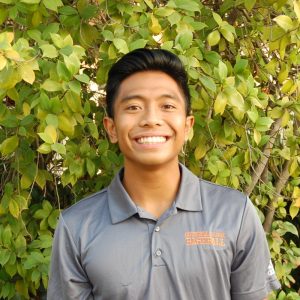 JP Flores (he/him) is a first-generation, Filipino college student from Santa Clarita, CA. He graduated from Occidental College with a BA in Cellular & Molecular biology and is now a PhD student in the Biological & Biomedical Sciences Program (Bioinformatics & Computational Biology). He is the creator and host of the podcast From where does it STEM?. At Occidental, was a member of the varsity baseball team, a member of the justice, equity, diversity, and inclusion committee for their athletics department, a tour guide, Student Athlete Advisory Committee (SAAC) co-president, oxSEA Ocean Conservation & Sustainability co-President, member of the Diversity & Equity Board (DEB), leading organizer of the Students for Equity and Advocacy in STEM (SEAS), and did academic research on the venom of fish-hunting cone snails in the Biology Department. Outside of Oxy, he was part of the Data Science team at the Sorenson Impact Center of the University of Utah’s School of Business as well as the co-manager of the center’s Student Coalition housed under the MAPS project. In North Carolina and at UNC, he is an assistant baseball coach at Chapel Hill High School and is looking to continue doing DEIJ work in his communities. He is a big believer in a multi-pronged approach for change: “bottom-up” approaches such as peer mentoring and “top-down” approaches such as equitable systemic change.
JP Flores (he/him) is a first-generation, Filipino college student from Santa Clarita, CA. He graduated from Occidental College with a BA in Cellular & Molecular biology and is now a PhD student in the Biological & Biomedical Sciences Program (Bioinformatics & Computational Biology). He is the creator and host of the podcast From where does it STEM?. At Occidental, was a member of the varsity baseball team, a member of the justice, equity, diversity, and inclusion committee for their athletics department, a tour guide, Student Athlete Advisory Committee (SAAC) co-president, oxSEA Ocean Conservation & Sustainability co-President, member of the Diversity & Equity Board (DEB), leading organizer of the Students for Equity and Advocacy in STEM (SEAS), and did academic research on the venom of fish-hunting cone snails in the Biology Department. Outside of Oxy, he was part of the Data Science team at the Sorenson Impact Center of the University of Utah’s School of Business as well as the co-manager of the center’s Student Coalition housed under the MAPS project. In North Carolina and at UNC, he is an assistant baseball coach at Chapel Hill High School and is looking to continue doing DEIJ work in his communities. He is a big believer in a multi-pronged approach for change: “bottom-up” approaches such as peer mentoring and “top-down” approaches such as equitable systemic change.
Applications will open for Academic Year 2024-2025!
To apply click here: [Coming soon!]
CLDP Project Reports:
Check out what projects our CLDP leaders have been working on below
Project Implementation Team: Team members supporting the following projects included: Anna Parker, Mark Geisler, Chad Lloyd, Dr. CL Graves, Dr. Anandita Pal, and Dr. Sarah Yannarell.
Student Portal Project (Proposed by Anna Parker): Not sure where to go to find opportunities to work to increase belonging and inclusivity in your department, field, or led by fellow trainees? Fellows developed a solution to help organize the many resources available at UNC to help facilitate the search for initiatives to find the best fit for trainees in search of such resources and groups! In order to coordinate efforts across the University, this project identified the need to organize a one-stop-shop to locate the multitude of resources available across departments. This project collated information into a single portal compiling related information about those programs available to and serving the graduate and professional student communities in order to create a centralized information connection hub for both trainee- and department-led diversity committees and groups. Hosted and maintained on the Graduate and Professional Student Government (GPSG) website, the newly released portal lists contact information and mission statements for each group, to facilitate collaboration between departments and programs. “We hope this webpage will facilitate connectivity between committees, in which resources, advice, and institutional knowledge can be shared and maintained,” Parker notes. The link to the GPSG-housed Grad Student Connection Portal was successfully launched in February 2022!
WISHR Project (Proposed by CL Graves): The Women in Science and Healthcare Research (WISHR) Peer Support Initiative based in the Adams School of Dentistry (ASOD) is a gender-inclusive research-focused group with the mission to foster a sense of well-being and belonging, facilitate collaboration, and support and advocate for the advancement of research-affiliated students, staff, residents, postdocs, and all-levels of faculty. Founded as a UNC JEDI Fellows Project, it also serves as a Peer Support Pod as part of the Carolina Peer Support Collaborative. The newly founded group is focused on executing social and networking events as well as professional development workshops that encourage inter-level collaboration and engagement with research projects affiliated with the ASOD. Since the initial organizing event in Fall 2021, the first networking event yielded more than 60 participants across research-levels and units, and planned future events include social and networking events, such as a Breakfast Research Club Social, and a Mentor-Mentee Networking event to help students interested in research pair with research mentors. One of the group’s founders, Dr. CL Graves, noted that, “to date, we have received wide support and enthusiasm across levels and departments.” We look forward to seeing this group continue to create meaningful and engaging events and encourage research-focused dialogue and collaborations!
Introducing New Trainees to Research Opportunities (Proposed by Mark Geisler):
Figure 1. Survey Response Results
Lack of awareness of research opportunities and lack of pay are two large hurdles for many undergraduate students interested in academic research. This inspired the team to design the INTRO (Introducing New Trainees to Research Opportunities) program. This program seeks to lower those hurdles and create more equitable access for students interested in research with little to no experience. Faculty and labs who wish to participate will commit to a paid 15-week research experience during the academic year. To pair students and faculty or other researchers in these labs, both parties will attend a mixer where researchers seeking undergraduate help can pitch a project or their lab’s research with a very short talk. There will be a mixer afterwards so interested students can meet and interact with faculty and researchers in an informal environment. The goal is to pair interested students, particularly under-represented minority students, with labs that are able to offer a one term research experience.
Of labs that were surveyed 64% were interested in participating this spring. The other 36% were undecided due to a variety of factors. Of labs that responded yes, 86% were able to offer that student a paid position and the other 14% were dependent on funding. The team is currently modifying the program design based on initial feedback and is also looking for a place to house the program to make this initiative sustainable. The team hopes to have the program’s first trial in this upcoming school year.
Project Implementation Team: Team members supporting the following project included: Danielle Williams, Oscar Arroyo, Dr. Juanita Limas, and Dr. Rachel (White) Walmer.
Figure Legend. BBSP admissions data. a) The average percentage of applications, interviews, and matriculations of students into the Biological and Biomedical Sciences Program (BBSP) for the 2008-2021 admission cycles (top). The percentage of URM and non-URM applicants by admission cycle for 2008-2021 (bottom). b) The percentage of URM student matriculations into the BBSP for the 2008-2021 admission cycles compared to the North Carolina (NC) URM population. The black line indicates the projected NC URM population while the gold indicates census derived data. c) The percentage of Black student matriculations into the BBSP for the 2008-2021 admission cycles compared to the Black population in NC.
ADA Graduate Admissions Project (Proposed by Danielle Williams and Oscar Arroyo): In recent years there has been an increased interest in recruitment and retention of individuals from historically excluded populations to academia. Many institutional websites now have sections devoted towards diversity, equity, and inclusion (DEI) initiatives and strategic plans to increase the representation of historically excluded individuals. For example, the UNC School of Medicine’s (SOM) website states that the SOM aims to “build a more diverse community reflective of those we serve” with the goal of maintaining a diverse and inclusive environment. The admissions committees for the SOM’s Biological and Biomedical Sciences Program (BBSP) have already taken crucial first steps towards this aim by maintaining the proportion of qualified applicants from majority and underrepresented backgrounds that are selected at each step of the admissions process. An analysis of the admissions data for the BBSP revealed that the average proportion of matriculations for traditional applicants versus domestic minority applicants has remained relatively stable throughout the 2008-2021 admissions cycles. The data suggest that current efforts have not been sufficient to attain the SOM’s goal for diversity as the diversity of each matriculating class for this period is not representative of the population of North Carolina. This trend is extremely pronounced for the Black/African American student body.
This project sought to address the continued underrepresentation of historically excluded individuals in BBSP by advocating for the inclusion of student voices. The team proposed accomplishing this by integrating current graduate students into the admissions review process with an emphasis on the inclusion of current students from historically excluded populations. Eligible students must have advanced to candidacy, in order to have an intimate understanding of the qualities necessary to succeed as a graduate student at this institution. After extensive training by admissions staff, selected candidates worked closely with the admissions staff to holistically review applications from underrepresented populations. The new program, entitled the Admissions Diversity Advocate (ADA) program, was founded in Fall 2021 with an inaugural cohort of five ADA Fellows selected to serve as liaisons to admissions committees and advocate for strong applicants who they identified as having competitive skills and experience necessary to succeed in graduate school and the research enterprise. The 2022-2023 admissions cycle served as the pilot for this program and current plans seek to renew and expand this program for the coming year.
Cohort 2 Project Reports:
Check out what projects our Fellows have been working on below
Project Implementation Team: Team members supporting the following projects included: Mark Geisler, John Patrick “JP” Flores, Micah Hysong, and Anna Wheless.
COURSE PROJECT (Proposed by John Patrick “JP” Flores and Micah Hysong): In response to student feedback requesting an enhanced curriculum, Micah Hysong (1st year) and JP Flores (2nd year) designed a class that examines the impact of systemic biases and discrimination on our research practices and equips students with skills to advance equity and belonging in the lab. Along with Anna Wheless (4th year), they also compiled summer resources to prepare incoming students for these year-long discussions.
Canvas Multimedia Platform Site: https://uncch.instructure.com/courses/347/pages/summer-reading (available to all incoming BBSP students)
WRITING ABOUT RACE PROJECT (Proposed by Anna Wheless):
This project aimed to compile a resource for biomedical research to provide suggestions for writing about race in biological science. We invite you to take some time today, on Juneteenth – now a federally recognized holiday – to check out some resources recently developed by our trainees for our trainees, on writing about race in biological science (preview below – or link directly to learn more). Thank you to Fellows – Anna Wheeless, JP Flores, and Micah Hysong – who served on the Author/Reviewer team for this project!
This project developed by the author and reviewers. The reviewers (and the author) have volunteered their time for their role in producing this document and do not comprise an official committee. The author accepts full responsibility for the content of the article and acknowledges an imperfect understanding of this complex and dynamic topic.
TL;DR: Many publications in biomedical and biomedically-adjacent basic research still stratify results by race as if race were an accurate proxy for shared heritage, which it is not. Recent NIH-funded projects (NASEM Report, All of Us Research Program) officially recommend that we do not use race as a proxy for genetic ancestry because race is socially, not genetically, determined. Race and ethnicity can affect a person’s biology through social determinants of health (SDOH) and these effects should be investigated, but race and ethnicity themselves are not biological categories. Our papers and presentations need to leave no room for the misinterpretation that races are biologically distinct groupings. Recommended readings included.
Learn more about writing about race in biological science and access additional reading lists and resources by checking out the project, “Writing About Race in Biological Science” by Anna Wheless (Reviewes by Laura Raffield, PhD; Nikea Pittman, PhD; Gail Henderson, PhD; Micah Hysong; John Patrick “JP” Flores), which was published on June 11, 2023 and released on Juneteenth.
Project Implementation Team: Team members supporting the following projects included: Anna Parker, David Malcom, Maria Al Haddad, Christiann Gaines, and Hatim Belgharbi.
OUTDOOR SURVIVOR PROJECT (Proposed by David Malcom):
Event Description: Are you new to the outdoors? Do you want to learn the skills to feel comfortable navigating outdoor spaces confidently? Join us to build your skills and confidence in accessing the outdoors! Scientists, conservationists, and novice outdoor explorers welcome – bring your love of science to combine with love of the outdoors!
Presenting an Outdoor Adventure Training Event! The Outdoor Survivor Seminar – especially tailored to reduce barriers to accessing and enjoying the wilderness safely! We want to overcome barriers to US outdoor culture to create a welcoming entry point, especially for those from groups historically excluded from US outdoor culture – all are welcome!
Not everyone has historically had access to things like – receiving wilderness education; knowing where and how to attain quality gear and information; education on and experience with equipment use; and opportunities to build self-reliance, comfort, and confidence in the great outdoors. We aim to offer a brief introduction to all of these topics and more! Still interested? Read on!
Learning Goals:
- Recognize the importance of wilderness preparedness for outdoor excursions and one’s personal capability for effective preparation.
- Identify appropriate priorities in potential survival situations using the Rule of Threes.
- Develop a survivor’s mindset and understand how it can be used in both traditional survival situations and everyday challenges.
- Build an effective, personalized survival kit.
- Practice useful survival skills, including shelter building, navigation by map & compass, and fire safety.
A morning of fun and learning led by Fellow David Malcom – open to all friends and members of the UNC community, undergraduate, graduate, postdocs, faculty, staff, and more! Developed for STEM grad students by STEM grad students in the Program, and welcomes all comers.
Acknowledging the wisdom of native and indigenous peoples on whose land we now reside and learn, we have partnered with our UNC SACNAS chapter to co-sponsor this event! We also hope to build bridges between science, outdoor appreciation, native wisdom, and academic knowledge with lived experience and appreciation of the earth.
As we will be indoors and outdoors for different portions of this event, please bring your own refillable water bottle – water refill stations will be available. Meet in the lobby of GMB for the session kickoff! Wear comfortable clothes, closed-toed shoes, and weather-appropriate. Will be held rain or shine, and we will adjust location on-site as needed to accommodate the weather.
Panopto Link: If you missed it, check out the JEDI Survivor Seminar on demand! (Link coming soon)
INTERNATIONAL CONNECTION PROJECT (Proposed by Maria Al Haddad and Christiann Gaines): Our JEDI project focuses on joining forces with Global Perspectives in Biomedicine (GPB) to create a new peer support network for international students in the Biological and Biomedical Sciences Program (BBSP). At GPB, we recognize the unique difficulties that international students face when adapting to a new academic and cultural environment.
Our primary goal is to foster a supportive community where international students can connect with their peers, share similar experiences, and establish meaningful relationships that will enrich their PhD journey.
By joining GPB, students will have the opportunity to:
- Connect with a diverse group of students from different countries, allowing for the exchange of perspectives and experiences.
- Gain valuable insights and advice from senior international students who have successfully overcome the challenges of studying abroad.
- Participate in workshops, social events, and cultural exchanges that promote cross-cultural understanding and personal growth.
- Develop leadership and mentorship skills by becoming mentors for incoming international students.
GPB’s plan for the year is to provide comprehensive support to incoming international students from the moment they accept UNC’s offer until their graduation. This includes assisting with the relocation process to the United States (or North Carolina), guiding them through the logistics of the initial months in a new country, establishing a supportive community, organizing monthly cultural exchange potlucks, and hosting seminars on being a global scholar, among other initiatives.
The revamped peer support network will connect new cohorts with experienced senior students and international faculty members who can offer valuable wisdom from their past experiences. Recognizing the isolating and challenging nature of moving to a new country and starting a PhD program, our aim is to make the transition and integration of international students smoother. The group is open to both international and US-based students because we believe that everyone’s perspective is insightful, and all experiences can be learned from. This approach will enhance the integration process, promote cultural diversity, and encourage exchange among students.
We are now in the process of sending out interest forms to current students and incoming students to begin forming our group.
BACHATA PROJECT (Proposed by Hatim Belgharbi): We conducted a study in which we facilitated a bachata dance class to promote well-being in graduate students at UNC.
INTRODUCTION: What sparked the initiative was the fact that anxiety and depression affect graduate students in all disciplines around the world. In the US, among a combined 14,175 undergraduate and graduate students, 17.3% were positively screened for depression and 9.8% were positively screened for anxiety disorder [1]. Internationally, results from 26 countries and 234 institutions show that 39% of graduate students suffered from severe depression and 41% from severe anxiety [2]. There are multiple risk factors for depression [3] and anxiety [4], but we chose a consequent approach to the issue rather than a causal one. We know that delayed gratification is a hallmark of successful individuals, as opposed to instant gratification [5]. Moreover, physical activity [6] and positive social interactions [7][8] have been shown to lower anxiety and depression.
METHODS: A dance class was chosen as an activity that encompasses the above characteristics. A pre- and post-surveys were gathered to measure short term change in coordination, stress level, feeling part of a community, and feeling socially supported.
RESULTS: Post-event feedback shows that the attendees recognized that the event procured significant value, even if they were put outside of their comfort zone. Stress level show an overall decrease post event, while feeling socially supported and coordination levels show an overall increase.
REFERENCES:
- Eisenberg et al. 2013 “Mental Health in American Colleges and Universities”
- Evans et al, 2018. “Evidence for a mental health crisis in graduate education”
- Abdul Razzak et al, 2019. “Depression: Prevalence and Associated Risk Factors in the United Arab Emirates”
- Blanco et al, 2014. “Risk factors for anxiety disorders: common and specific effects in a national sample”
- Kasser, 2000. “Two versions of the American dream: Which goals and values make for a high quality of life?”
- Hu et al, 2020. “Beneficial Effects of Exercise on Depression and Anxiety During the Covid-19 Pandemic: A Narrative Review”
- Seabrook et al, 2016. “Social Networking Sites, Depression, and Anxiety: A Systematic Review”
- Teo et al. 2013. “Social Relationships and Depression: Ten-Year Follow-Up from a Nationally Representative Study”

